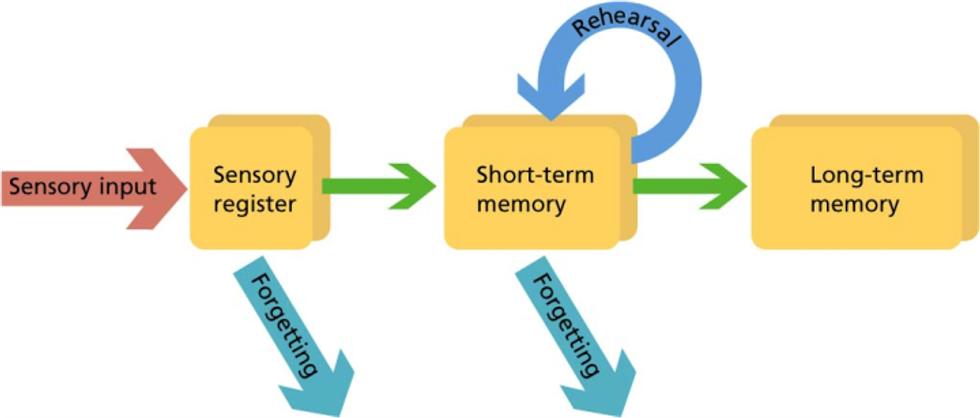I don't remember much about 2003. This has less to do with the fact that I easily forget things and more to do with the fact that I was only turning 8 years old. I do remember when Finding Nemo came out, though--there's no way I could possibly forget that. My school had this special night where everyone came back to the gymacafetorium to watch Finding Nemo on a big screen and eat popcorn. I was amazed, both at the popcorn containers we got to have and at the movie. I remember not wanting it to end. Understandably, of course, I was more than thrilled when Ellen DeGeneres announced the sequel, Finding Dory.
You see, Dory has always held a very special place in my heart. Besides the fact that she executes my theory that talk show hosts voice amazing Disney characters (there aren't many, but look it up and see for yourself), Dory made me feel something I had never felt before, and let me tell you I was obsessed with how connected I felt to the Little Mermaid growing up (and still now, sort of, shhh). When I "met" Dory, so to speak, I didn't think she was only funny, I thought she was special. This mostly had to do with how she had short term memory loss.
Your short term memory is a lot like the sticky note pad of your brain. It stores really small pieces of information at short amounts of time, typically around 15-30 seconds. You use this a lot during the day to do things like: temporarily memorizing a promo code to enter and purchase concert tickets, making note of a comment you want to make as soon as your friends are done fighting over Bachelorette contestants, or to prepare yourself when you're driving and make a decision to change lanes after a specific car passes you. Short term memory is basically a process, and it is said to occur in the prefrontal cortex of the brain. Short term memory also acts like a filter, deciding what's important to keep and what isn't. Whatever is kept, over time, becomes long term memory. Again, it's a process, and it works kind of similar to how a computer works.

Short term memory loss can be used to describe a few instances. Often it's used to describe when a person forgets things that recently happened. As it escalates to serious memory loss, signs go from walking into a room and forgetting what you're doing there to getting lost close to home and struggling with every day tasks. This can happen for a few reasons. A person can be like Dory and, thanks to the sequel, we know her back story with short term memory loss. Since it's a process in the brain, short term memory loss can just occur because it's how that particular brain functions. It can also occur as a result of accidents or medical conditions, such as Anxiety Disorders and Fibromyalgia. As a person who has both of those in particular, I can say that losing your train of thought can be extremely frustrating, and existing in a "fibro fog" can be difficult to describe to others, however, I personally can not compare it to those who suffer from serious memory loss. Sometimes, short term memory loss can be the first sign of Alzheimer's.
It's heartbreaking to watch a loved one forget who they are, who you are, and not be able to complete everyday tasks without assistance and reassurance that they are safe. I witnessed this with my grandfather before he passed as his Parkinson's escalated, but only got a glimpse of this with his father, my great-grandfather Joey, who had Alzheimer's. My first few memories of life ironically enough involve my great-grandparents and I feel very fortunate that they do. I remember feeling a sensation of fear being around Joey, as if I could see his fear in lacking stability, or feel the fear of everyone surrounding us--the fear that he wouldn't remember any of the people in the room with him. Movies tend to glorify or romanticize these instances to demonstrate how true love can conquer anything (nothing against The Notebook, though--I love it), but I don't think anything can demonstrate the feeling of losing someone who is sitting right in front of you. I was so young when Joey was in my life, but I feel like I almost lost him before everyone else in a way because I didn't get the chance to know him before his Alzheimer's. Experiencing life and going to see movies as a child and an adult where a blue tang fish starts conversations about memory loss has allowed me to venture out to find more information about how the brain works, to find studies and foundations that support those seriously affected by memory loss and Alzheimer's, and most importantly, to find Joey.
So, thank you Dory. Spoiler alert--I'm glad you found your family, your home, and everything else. Thank you for teaching me important life lessons and for helping me, even if it was as simple as a reminder to keep going through a difficult journey to find something; to just keep swimming.
*You knew I had to end with that, didn't you? Anyway, here are some resources:
https://www.nia.nih.gov/alzheimers/publication/understanding-memory-loss/introduction





















